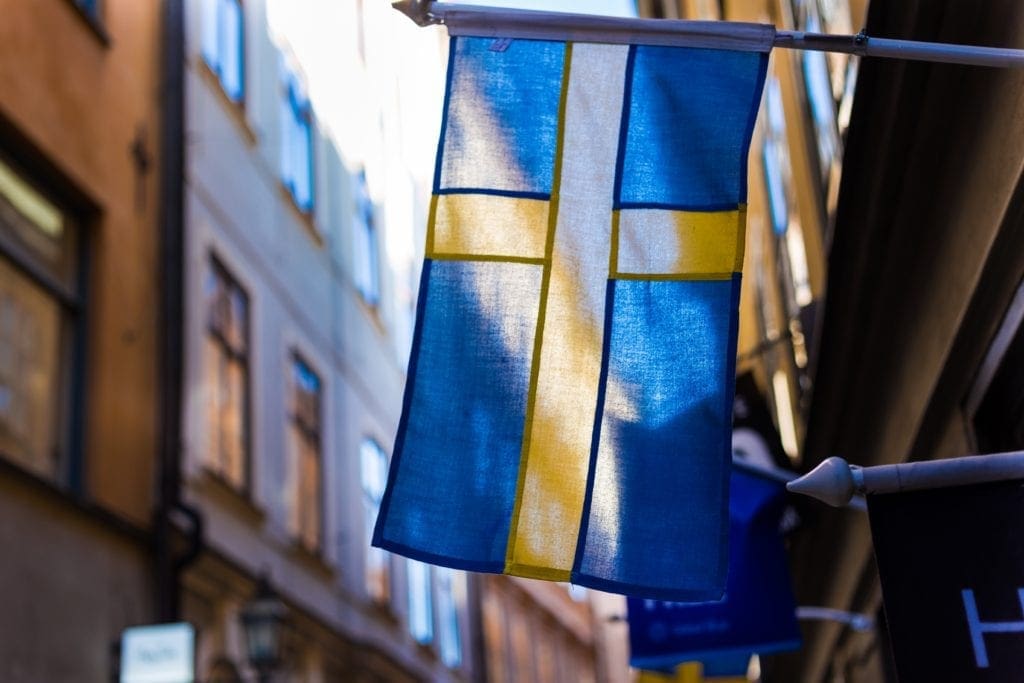Jon Nylander wrote an interesting piece for the Mises Institute regarding Sweden and its welfare state.
Sweden’s welfare state is the object of international praise among leftists worldwide. Because of Sweden and its Nordic counterparts’ impressive living standards and generous welfare states, many are quick to draw the conclusion that the welfare state is the primary reason behind the country’s prosperity.

For starters, it should be clarified that Sweden is no socialist country.
It is among the highest ranked countries in terms of economic freedom, with a 19th place ranking in economic freedom according to the Heritage Foundation. On top of that, private property rights are respected—no expropriation of landholdings by the state—there exists a price system that functions according to markets.
Nonetheless, welfare transfers can raise a number of issues, especially in the current context of mass migration that the European Union is facing. Nylander notes that “Sweden has accepted a considerable amount of immigrants (to put it mildly) from cultures that differ wildly from the Swedish.”
Multiculturalism has become a controversial topic lately when discussing Europe’s current refugee crisis and immigration from Islamic countries in recent decades. The debates on both sides have merit. The idea of multiculturalism is not bad per se if it is done voluntarily.
In other words, no welfare magnets, forced integration schemes, or arbitrary government quotas that satisfy the egos of agenda-driven politicians. In other words, immigrants from different cultures come to other countries for work-related purposes, thus facilitating assimilation.
However, politicized multiculturalism brings different problems. Nylander illustrates this well:
Forced multiculturalism, on the other hand, increases polarisation and tribalism along with the most basic, and most easily recognized dividing lines.
In today’s political climate of identity politics, political commentators and politicians obsess over categories such as race, and will even go as far to use government force to implement policies that will promote “anti-racism.”
Some policies, like welfare, are more subtle, and do function as a magnet for migration from culturally distinct regions, while planting the seeds of social corrosion for recent migrants. Over the last decade, there has been a rise in immigrant ghettoes in numerous countries such as the United Kingdom and Sweden. Nima Sanandaji’s Scandinavian Unexceptionalism sheds some light at what possibly could be going on in the Swedish case.
Sanandaji argues that the welfare state has been a hindrance for immigrants trying to join the workforce. Because of this inability to immerse themselves in the workforce, immigrants from such distinct cultures have a harder time assimilating to their new host culture. The author of this politically incorrect book is a Swede of Iranian descent. Sweden has experienced various migrant waves from Middle Eastern countries such as Iraq, Iran, and Turkey. These initial waves of migration did not bring many problems.
But in present times, there are certain trends that point to Middle Eastern immigrants having difficulties not only in assimilating but also in attaining better economic outcomes. This development is especially notable when placed next to America, which has a lighter welfare state and a more flexible labor market.
Sanandaji juxtaposes these two examples:
“Between 1993 and 2000, the income from work for the average Iranian immigrant was only 61 percent, and for the average Turkish immigrant 74 percent, of the average income of a native Swede.”
On the other hand, Iranian and Turkish immigrants to America have performed significantly better:
“According to the US Census for 2000, those born in Iran had an income that was 136 percent of the average for native-born US residents. Those born in Turkey had an income of 114 percent of the average for native-born residents.”
Although Sanandaji admits that there are differences between the Iranian and Turkish migrant waves to America and the ones who landed in Sweden, he argues that the differences alone can’t explain the significant gap between the immigrant groups. Sanandaji explains that “many of those who left for Sweden had belonged to the Turkish or Iranian middle classes.”
All in all, countries like Sweden would benefit from a more labor-focused immigration system. A way to start is by phasing out welfare benefits and making it easier for immigrants with certain skills to join the workforce. From there, they can rub elbows with the native populations and become part of the Swedish culture.
There’s no real need for more state involvement to solve this dilemma. However, diversity for diversity’s sake should not be a guiding principle for sound policy.
At the end of the day, policies that champion voluntary action should remain king when it comes to public policy discussions.

























